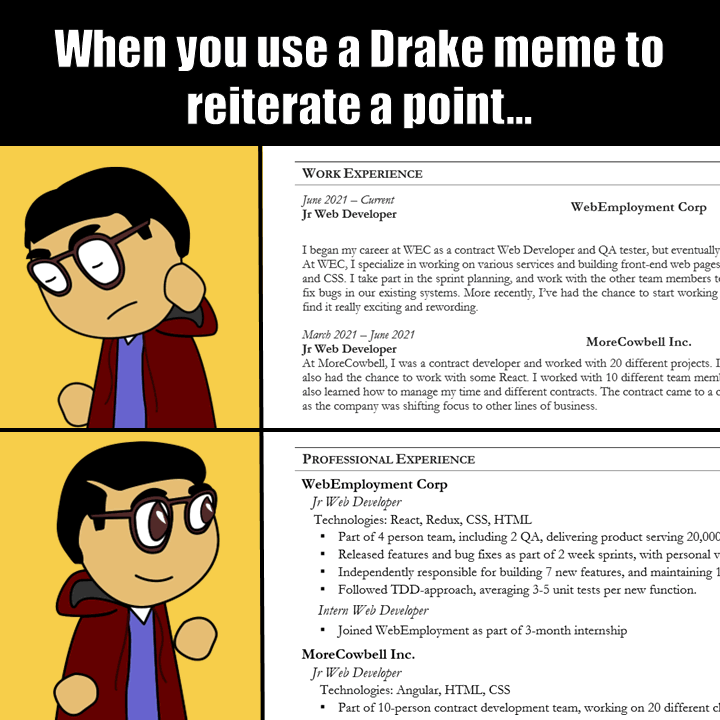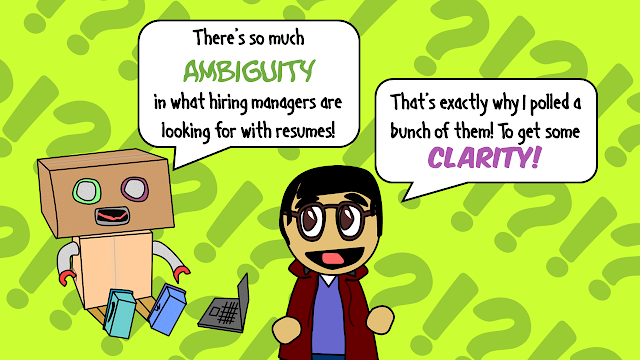Entry-Level Job Hunting
Someone recently reached out asking for tips for their first job hunt.
I honestly struggled with the response because I wanted to give the best advice I could give. Frankly, I really wondered if my advice would be good at all. Afterall, my career started almost 20 years ago and while it was tough then, it's not like what it is today. A simple "Just do this..." approach didn't work then and works even less now.
So I've really been challenging myself with this idea: If I got started today, in tech, in this economic climate, with large layoffs happenings, an increasingly competitive job market, with no experience, no network, and few resources, what would I do? Where would I get started? How would I find my first job?
While I don't know if I have the answer, I have some perspective that may help: Re-think what a "first job" can be.
I say this because I see a lot first-time job seekers think the first time job has to be at a name brand. Maybe they've been sold promises, maybe they have inflated expectations, maybe they're coached to pursue them. And if it's a large name brand, it may be a local name brand, or even just a brand (as in, any company - large or small that can pay for a logo.)
This perspective is reinforced by the job title: Entry-level. Entry into what?
It should be entry into the workforce, and not (as I see if often confused) entry into the company owned building, or company leased office space.
I'd redefine "first job" very simply: any paid work you do in support of the career you are pursuing.
This can be a local musician, a social club, a business run out of a garage, a local handyperson who wants to expand their reach. It could be an uncle running a side-gig.
And, in fact, this isn't exclusive to a 'first' job. This can be your second job, third job, fourth job, fifth job - as many jobs as it takes until you have built enough of a resume and experience that gets you entry into the building (if that remains your goal.)
And, as an important call out with my definition: I included 'in support of the career you are pursuing' because, ultimately, while you want relevant work experience keep in mind that the word support is doing a lot of heavy lifting. Don't narrow the definition of support to mean work that is explicitly in line with the job title you're pursuing. Support can mean that, or anything along its peripheries. Support can mean any work that helps you grow skills that would be valuable to your role. In keeping this perspective, you drive your own career growth, your own roles and responsibilities. You learn soft skills, you learn project management skills, and you learn how to get things done - all things that can (and should) be highlighted and amplified on your resume.
Eventually, the work you grows your experience until you hit the critical inflection point where your resume begins to speak for itself. I don't know where that is - but I know it exists.
I hope you find your inflection soon enough.
.jpg)




